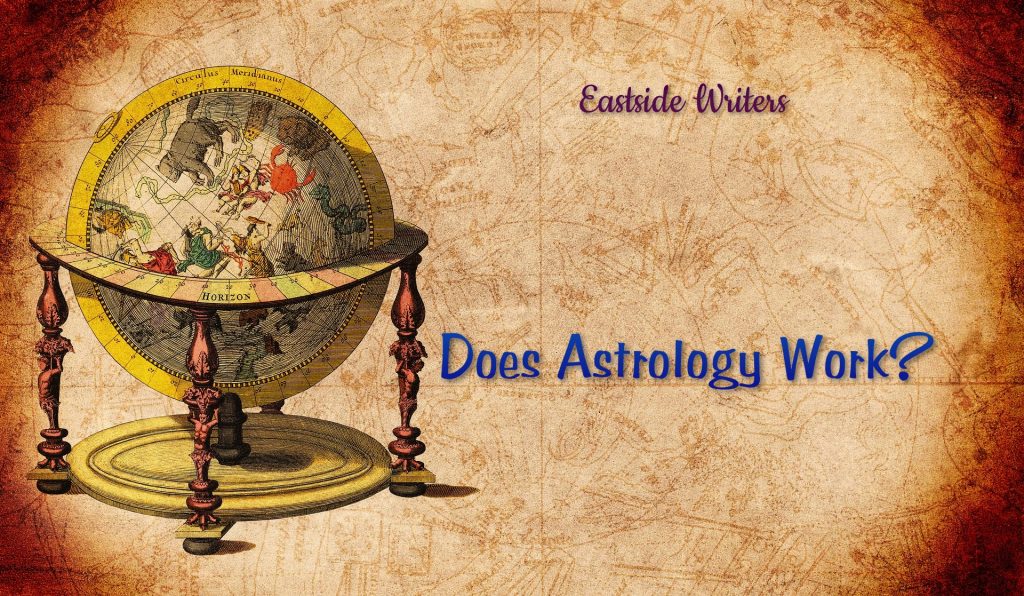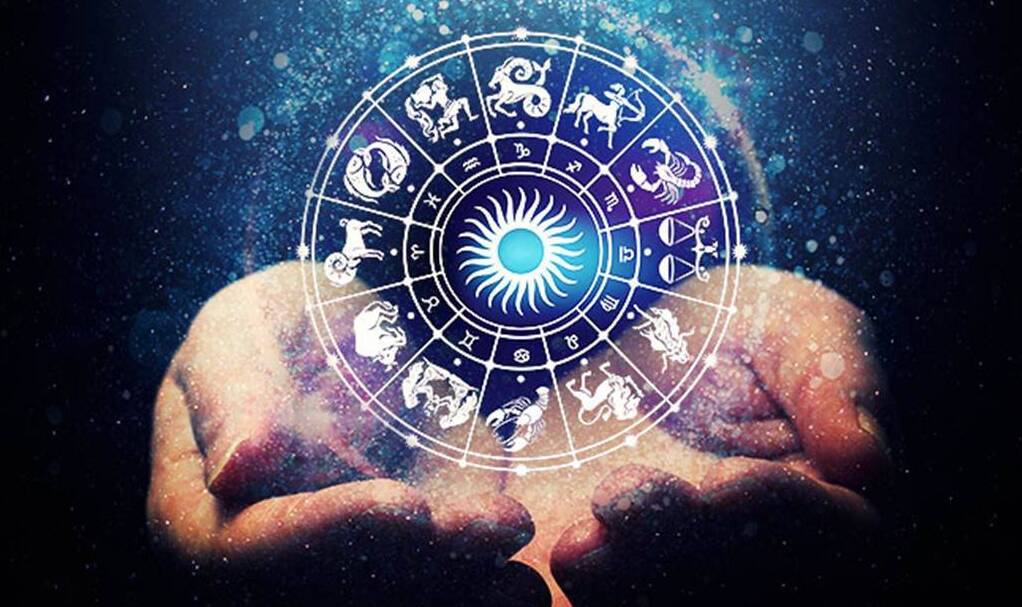
Does astrology work? Believers say yes, sceptics say no, Many individuals are curious about how many people believe in astrology and why they do so despite their own experiences proving otherwise.
However, we must first establish more fluid categories of belief and scepticism in order to answer these concerns. We can’t just state that certain people entirely believe in astrology while others completely reject it.
What does history say about Astrology?
Since the beginning of time, humans have looked to the stars for direction. Astrology, in reality, has been practised for thousands of years. Many people continue to investigate the influence of celestial bodies on human behaviour, even if it is no longer considered a scholastic tradition as it was centuries before.
Astrology, a para science that analyses the influence of planets on human fate, has a long history: even in ancient Mesopotamia, it was used to forecast events on a national scale.
People who claim to be experts in this discipline create and attempt to interpret astrological charts, which are schematic representations of the positions of celestial bodies at a given time.
Today, you can get more and more advice on how to act during Mercury retrograde or the next corridor of eclipses on Instagram, and powerful people frequently consult an astrologer.
It is a matter of taking responsibility to believe in astrology. Externalities (a personality type characterised by an external locus of control) are people who have an inclination to blame the outcomes of their actions on the influence of others and the environment around them rather than on themselves).
What Astrology has to offer
They are accustomed to believing that their actions are a result of external events. Astrology offers simple answers to complex questions: you can’t change yourself, but you can believe that the stars haven’t aligned or that the individual isn’t the same as their zodiac sign.
Astrology is explained psychologically by the Forer effect, which states that people are more likely to believe ambiguous statements of test results or horoscopes.
If we like the description, the result is attained in a difficult manner (for example, for money), and the person who provides us with the result is an authority, our faith is strengthened. Also, when we are in a condition of heightened suggestibility as a result of a stressful life scenario, our faith in astrology grows stronger.
People prefer to look for external justifications and answers when they are in a crisis. People are waiting for a major parent to explain everything and tell them how to do the correct thing, rather than the other way around. This is caused by emotional immaturity.
Some therapy strategies are effective because they are simple to comprehend. As a result, astrology and extrasensory perception commonly attract followers during tough times in a person’s life, particularly when he is confronted with extreme crises, such as loss.
Let’s ponder upon the fact that Mars is 9,545,7000 kilometres away from Earth have an impact on whether you, a live entity among billions, chose to procreate with another human?
What is Astrology?
Astrology is a pseudoscience that harkens back to a time when humans were nomadic and slept by gazing up at the stars. We assumed our stories were inscribed in the skies above because of our primitive comprehension of stars and planetary motion.
Planets and stars have existed for millions of years before there was any life on our planet, and they will continue to exist long after our species has died out. The position of Mars, Jupiter, or any other planet has no bearing on your business or health, and to be honest, it’s a little presumptuous of them to believe that the universe was created specifically for them and their whims.
Socionics and psychosophy, in my opinion, are similar to astrology in that the idea of a clear divide into innate personality types lies at the centre of the worldview. Astrology and metaphorical associative cards are both similar.
Astrology, divination, and the paranormal are all predicated on the reality that we search for answers and connections and often discover them where they aren’t. We notice coincidences and interpret them as validation of our conclusions.

The psyche behind Astrology
The human brain is wired to hunt for connections in everything that happens around it. Apophenia, or the tendency to see familiar images in everything, is unique to us (in childhood, everyone looked at wallpaper near a bed or a cloud and found images of faces or animals in abstract images).
When people gazed up at the night sky and saw familiar figures in a random arrangement of stars, they began to attribute significance to them, and astrology was born.
Astrology, divination, and the paranormal are all predicated on the reality that we search for answers and connections and often discover them where they aren’t. We notice coincidences and interpret them as validation of our conclusions.
The human brain is wired to hunt for connections in everything that happens around it. Apophenia, or the tendency to see familiar images in everything, is unique to us (in childhood, everyone looked at wallpaper near a bed or a cloud and found images of faces or animals in abstract images.
How it all started
When people gazed up at the night sky and saw familiar figures in a random arrangement of stars, they began to attribute significance to them, and astrology was born. If you look hard enough, you’ll find it in everything.
And if that is to be so true, then astrology is involved, and what happens is that astrologers send out some random data – similar to what a random number generator may generate – and by static coincidence, they turn out to be correct for a certain percentage of people.
Even if I just throw in ten words that can be used to characterise a person – hot-tempered, sorrowful, dreamy, passionate, and so on – you will most likely find that these definitions are appropriate for you. This is a collection of statistical patterns.
Furthermore, you can design a template set of responses that will work for everyone, without exception. On the Internet once, there was a psychological exam, the results of which people thought were appropriate for them.
It was then discovered that the comments were delivered to everyone in the same way. It’s only that they created stuff that would fit each person’s description: “You want to trust others, but don’t do it too quickly out of caution.
“You are a good person, but you can get angry at times,” or “You are a kind person, but you can get angry at times.”
How does Prediction work in Astrology?
Predictions can be made in two ways. The first is that broad predictions are made that are likely to come true for a large enough group of people (everyone can predict that there is a long road ahead of him, a chance meeting and great disappointment).
The second ensures randomness: an astrologer provides a person with his forecasts; they do not fit a certain number of individuals (then they are forgotten), but they turn out to be true for certain people.
Then these individuals tell everyone what the astrologer said, and everyone agrees: “He predicted a long voyage, and a month later we arrived in Turkey to relax.”
These people are the ones who encourage people to believe in astrology. It turns out that astrologers don’t necessarily have to get straight to the point; if they do it a few times, people will keep coming back because they feel an astrologer is a foreteller and a hero.
Astrology- Creation of our restless mind!
The desire to find explanations for everything leads us to believe in omens and superstitions. “After that, then, because of that,” is a common reasoning error. If a guy spits salt and twists his leg, he will most likely believe that the first caused the second.
If a person has gone to an astrologer for many years, he will undoubtedly recall the correct prognosis when it comes true. And, because astrologers tend to speak a lot, a person will most likely remember some of his statements later.
Is Astrology an Occult practice?
Astrology was never truly esoteric in the first place.
It was openly practised in biblical times, and evidence indicates that it was a tool utilised by ancient civilizations beginning in Babylonia. It was never intended to be an esoteric science because it was never concealed or secret in and of itself. The Christian Church turned astrology into a taboo, occult, and mystical practice.
Figures like Nostradamus performed astrology behind the scenes because they would be prosecuted if they did it openly. It was a contentious period in human history, with the Church battling for control of the populace.
Blasphemy was defined as anything that supported free thought. Even Christian astrologers had to start practising behind the scenes. and astrology was indeed accepted by many in the early church. Astrologers do not believe in the worship of the stars and planets.
Vedic Jyotisha-Shashtra, or Indian Astrology, is a sophisticated scientific subject based on the cosmic structure of our universe and the bigger space. In the worst of even the smallest dimensions, it is not an occult practice. The word “occult” genuinely means. “beyond the range of human comprehension, hidden from view, concealed, available only to the initiate, and secret,” Jyotisha is the science of determining time, with a focus on predicting auspicious days and times for Vedic rites. Vedanga divided time into Yuga, a five-year period divided into several lunisolar periods such as 60 solar months, 61 Savana months, and 62 synodic months,
Scammers benefits from Astrology
Scammers, by the way, operate in the same manner. Some companies claim to be able to anticipate a child’s sex. If the predictions are correct, the firms collect payment from the client. If this is not the case, they will refund the service fee.
Because the chances of having a boy and a girl are nearly equal (boys are born somewhat more frequently), charlatans will guess in about half of the cases. Whatever the customer is told, 50% of the forecasts will come true, and some parents will leave money on the table for no reason.
Astrologers who predict the outcomes of sporting events also work in the structure of payment after the fact – regardless of what they anticipated, the forecasts will coincide with the rates for a set number of people.
What today’s civilisation has to say about Astrology.
Astrology is the concept that, depending on when one was born, the alignment of stars and planets influences one’s mood, personality, and environment. Astrologers publish customised horoscopes in newspapers based on a person’s birth date.
These horoscopes make predictions about people’s personal situations, define their characters, and offer guidance based on astronomical bodies’ positions. According to a poll done by the National Science Foundation, 41% of people believe astrology is “extremely scientific” or “kind of scientific.”
Let’s break down the original query into two more precise questions:
1) Is a person’s life affected by the position of astronomical bodies?
2) Can horoscopes improve people’s moods? These are two completely different questions. Both are scientifically verifiable.

Are the fundamentals suitable for you?
Is it true that the positions of astronomical bodies have an impact on people’s lives (beyond the weather)?
No. Seasons are determined by the sun’s position and orientation in relation to the earth. Anyone who has shovelled snow off his path in January when he would rather be at the beach can attest to the fact that the planets have an impact on our lives.
Electromagnetic disturbances caused by solar flares can impair satellites and possibly create outages on Earth. Ocean tides are caused by the moon’s position. If you’re a fisherman, the moon’s location might have a big impact on your livelihood.
Beautiful auroras are caused by solar wind, and sunlight is our planet’s primary source of energy. All of these impacts, however, are covered by simple meteorology, not astrology. Astrology claims that, depending on a person’s birth date, astronomical bodies have an impact on their lives beyond fundamental weather patterns.
Scientific standpoint about Astrology
This claim is untrue from a scientific standpoint. Several scientific research has refuted the idea that astronomical bodies have an impact on people’s lives based on their birth date. For example, Peter Hartmann and his colleagues looked at nearly 4000 people and discovered no link between birth date and personality or IQ.
Shawn Carlson conducted one of the most renowned tests in which he had 28 astrologers give predictions and then verified their accuracy. He fine-tuned the procedure before doing the experiment so that many independent scientists agreed it was scientifically sound, as well as so that all of the astrologers concurred.
Also, all of the astrologers had to agree that the test was fair. He discovered that astrologers were no better at predicting the future than random chance, according to a study published in Nature. These findings are consistent with basic science.
The cosmic effect
Gravity, electromagnetism, the strong nuclear force, and the weak nuclear force are the four fundamental forces of nature. When an object interacts with a person, it must do so via one of these fundamental forces.
Strong acid, for example, burns your skin because the acid’s electromagnetic fields pull on your skin molecules so intensely that they split apart. Gravity drags a falling boulder onto you, crushing you. Because of nuclear forces, a nuclear bomb will evaporate you.
Each of the fundamental forces has the potential to be quite powerful. The issue is that they all die out as time passes. Beyond a few nanometers, nuclear forces decay so quickly that they are effectively nil.
Electromagnetic forces can range from nanometers to kilometres in length. Electromagnetic waves (light) can be detected from the boundary of the observable universe by sensitive equipment, although the light is extremely feeble.
Although a star’s gravity is technically felt across the cosmos, its unique impact on the universe is limited to its solar system. Polaris’ gravitational attraction on an earthbound human is weaker than the gravitational pull of a gnat flying around his head due to the impact of distance.
Similarly, the electromagnetic waves (light) from Sirius that reach an earthbound human’s sight are dimmer than the light from a passing firefly. If stars and planets had an impact on humanity, gnats and fireflies would have an even greater impact.
Even if the planets’ gravity was powerful enough to influence you, a literal alignment of the planets would not result in you winning the lottery. For the simple reason that it never happens in the real world.
Is it true that horoscopes can make individuals feel better?
Yes. But it has nothing to do with the accuracy of the horoscopes. Because of a psychological impact known as the placebo effect, horoscopes make individuals feel better.
The placebo effect occurs when a person’s belief in a useless procedure makes them feel better. The improvement is caused by the belief rather than the method. The placebo effect has been shown scientifically.
If you offer ten sick people water-only pills and tell them it’s a potent new treatment that will assist them. You may then have ten sick patients who refuse to take the pills. The patients who take the pills will improve in health over time.
Because of the placebo effect, a new treatment must be shown to make patients feel better. It must be demonstrated that it outperforms a placebo. The control group of inaccurate medical experiments is not a group of untreated patients.
The control group, on the other hand, is made up of patients who were given a placebo. The placebo effect is at work when it comes to astrology. A large number of people believe in astrology.
They feel better when they read their horoscope and follow its advice. However, it is their belief, not astrology, that makes them feel better. Many pseudoscientific treatments, such as crystal healing and homoeopathy, rely on the placebo effect to aid individuals.

Conclusion
Believing in a treatment that doesn’t work may be beneficial, but believing in one that does is much better. Sticking to scientifically proven treatments allows you to get the benefits of both belief and therapy action.
Instead of reading your horoscope first thing in the morning, go for a walk. Exercising is important. Exercise has been shown to be beneficial to both the body and the mind. Your belief in its benefits will also aid you.
Disclaimer: The author’s views are his or her own. The facts and opinions in the article have been taken from various articles and commentaries available in the online media and Eastside Writers does do not take any responsibility or obligation for them.
Note: Contact our Writers at www.eastsidewriters.com for writing Blogs/Articles on any niche. We have experts in various domains from Technology to Finance and from Spirituality to Lifestyle and Entertainment.







Pingback: Navagraha- Importance and Significance of Nine Planets - Eastside Writers
Pingback: Unlock the Secrets of Astrology with Predictive Chart
Pingback: Shining a Light on Cazimi: The Fascinating Facts of this Celestial Phenomenon - Eastside Writers